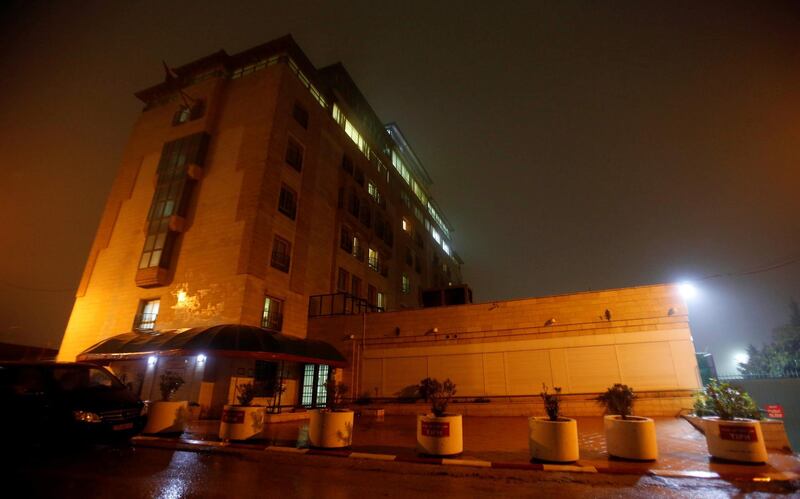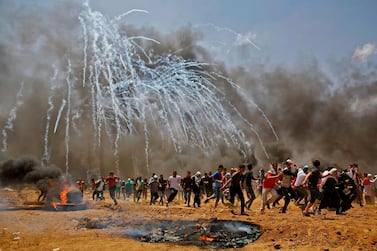The Palestinians are asking the United Nations to deploy a permanent international force in the West Bank and East Jerusalem.
Tuesday's request comes a day after Israel said it was suspending operations of an observer force in the city of Hebron, after 20 years.
Senior Palestinian official Saeb Erekat said the UN should "guarantee the safety and protection of the people of Palestine" until "the end of Israel's belligerent occupation".
Israel has decided not to renew the mandate for the Temporary International Presence in Hebron (TIPH) in the occupied West Bank city of Hebron, Prime Minister Benjamin Netanyahu confirmed on Monday.
The Israeli leader, who is fighting for his political survival at home amid a series of corruption allegations, made the decision because of a claim that the mission is biased against the Israeli settlers who live illegally in the occupied city.
"We will not allow the continuation of an international force that acts against us," Netanyahu said in a statement released by his office on Twitter.
The TIPH was initiated after the mass killing of Palestinians by a settler in 1994 and it has remained ever since. Israel has regularly renewed its mandate every six months, largely to maintain relations with the countries that contribute to the mission.
But the decision to not renew its mandate in the Palestinian city effectively closes the mission.
The Norway-led team is comprised of 64 observers who are tasked with promoting a sense of security for Palestinians in Hebron, the largest city in the West Bank.
The mission reports its findings to its member countries – Italy, Norway, Sweden, Switzerland and Turkey – as well as the Israeli and Palestinian authorities.
Israel has in recent years accused some observers of failing to act impartially. The mission was implemented to give Palestinians some sense of protection in a city where the Israeli military controls daily life. The Israeli army officially presides over 20 per cent of the city but its presence is pervasive.
The country's religious right celebrated Mr Netanyahu's decision. "We don't need foreign inspectors in the city of our ancestors," said Israeli Minister of Jerusalem Affairs and Environmental Protection Zeev Elkin.
Hebron is a flashpoint city where Israel's military occupies in order to protect around 600 ultrareligious settlers who believe the city to be one of the holiest sites in Judaism. More than 200,000 Palestinians live in the city under the military occupation and network of checkpoints that limit their movement.
The majority of Palestinian attacks have taken place in the city in protest against the military's violations or in retaliation for attacks committed by settlers.
The city was the site of one of the most controversial incidents in recent years, when an Israeli soldier was caught on camera shooting a Palestinian attacker in the head as he lay motionless on the ground. The soldier was only jailed for nine months amid calls from across the Israeli political spectrum, including Mr Netanyahu, for a pardon.
Rights groups document regular violations by the Israeli military and settlers in the city, such as attacks against Palestinian farmers and vandalism against Palestinian homes in the city. The Israeli military has sectioned off the main street in the city, Shuhada Street, where many Palestinians owned businesses. The repeated violations against the Palestinian population has given rise to a growing number of Palestinians leaving the city in recent years in search of a better life.
The outposts built, many on hilltops surrounding the city, are considered illegal under international law by the majority of the international community.
The Palestinians believe that the network of illegal West Bank settlements are being built and protected with the Israeli aim of preventing a contiguous Palestinian state.






